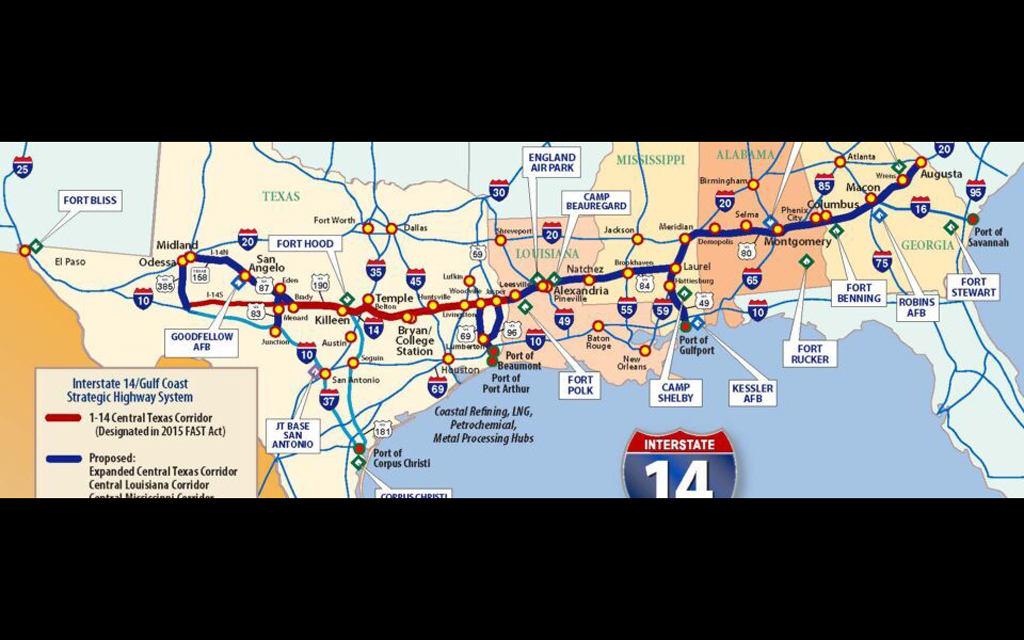
A bill amendment to create Interstate 14 out of smaller interconnected roadways across five states awaits approval in the U.S. House of Representatives. Courtesy image
Connection to strategic military installations like Naval Air Station Corpus Christi part of proposed interstate
Interstate 14 could become a reality, connecting five states and their military bases, including Naval Air Station Corpus Christi, if an amendment approved by the U.S. Senate also gets a thumbs-up from the U.S. House of Representatives.
The Port of Corpus Christi recently expressed its full support for the amendment, which is part of the Bipartisan Infrastructure Package currently being discussed in Congress.
The amendment designates Interstate 14 as a corridor through Texas, Louisiana, Mississippi, Alabama, and Georgia with a goal of connecting strategic military installations across the five states, including Naval Air Station Corpus Christi.
Another primary goal of creating Interstate 14 is to provide greater roadway capacity parallel to interstates 10 and 20 for freight movement and coastal evacuation.
The Interstate 14 corridor would be built from existing highways that connect along the more than 1,300-mile proposed route with new additions subject to environmental clearance and engineering processes.
“The Port of Corpus Christi, as one of this nation’s vital military strategic seaports, is pleased to see the value this will add to our nation’s military installations, while also providing increased efficiency and safety for freight mobility,” said Sean Strawbridge, chief executive officer for the Port of Corpus Christi.
The amendment to the Bipartisan Infrastructure Package is the first step in a lengthy process that lies ahead to build out Interstate 14. The focus now shifts to finding funding for planning and construction of projects on the corridor.
“Infrastructure projects of this scale, while taking years and decades to fully construct, lay the foundation for the success of future generations,” said Charles W. Zahn Jr., chairman of the Port of Corpus Christi Commission. “This amendment from our congressional leadership will go a long way to ensuring that economic growth, the safety of freight mobility, and supporting the mission of our nation’s military will remain protected priorities for years to come.”





